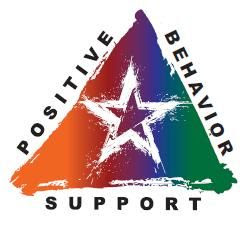 |
| This is a pretty way to picture it. |
1. My experience in Special Education included directing a Non-Public School (that's a separate facility for kids with extreme behavior problems due to behavior dysfunctions or emotional disturbance who have been expelled from their home public school.) At the small school I directed, we had students who had been expelled from the larger non-public schools. It follows that the Behavior Support Plans added to the IEPs (Individualized Educational Programs) for these students were written with input from medical doctors, educational psychologists, counselors, and frequently psychiatrists as well as District personnel and myself as the case carrier.
These were precision directives, much like a medical prescription or a protocol for physical therapy. There was nothing haphazard about this. With a carefully administrated system of positive reinforcement, interesting curriculum, and above all, parent buy-in, we saw progress. This was the elite level of teaching. Only the few, the proud and the thoroughly trained can maintain.
2. Behavior Support Plans are also written for students in other areas of Special Education. Many students on a public school are classified as Moderately Handicapped, and mostly learn in one classroom separate from general education. The handicaps are not the same, and could include OHI (Other Health Impaired), autistic, SLD (Specific Learning Disability) or a variety of disabilities identified as Moderate by special testing done by the District psychologist. In our state, for many years this was called Special Day Class requiring more specialized instruction for the students to succeed. There are separate Special Day Classes for Emotional Disturbed students because the regimen required is differently structured than other classes. The BSPs for these students are similar to the ones in a non-public school, addressing specific behaviors that can be modified by positive intervention.
 |
| Finger pointing is not considered a positive support. |
3. A student identified as Mildly Handicapped may also need a BSP. Students in this category may have only one class taught by a Special Education teacher, mainstreaming the remainder of the day. If a student exhibits behavior that merits certain discipline interventions from administration, then the Special Education teacher schedules an addendum IEP meeting, prepares a BSP to support the student to begin showing positive improvement. The whole IEP team includes the student, the parents, all teachers, administration and District Psychologist. This is the team that will help the student replace the inappropriate behavior with appropriate behavior. Again, the BSP is only as effective as the adults administering it. And this is a challenge.
 |
| IEP meetings are really, really important. |
If you are reading this, you are an educator, a parent, or a concerned friend. Maybe you're the student. If you have a concern, check with a professional more trained than yourself to answer questions about your child or student's behavior.
I would also check out (and this advice is for teachers, too) to see how organized the school site is--are the rules consistent? Is the work appropriate for your child's developmental stage? (For example, is there recess? Does your child or class have creative opportunities? Are bullies under control? Is there enough supervision?) Teachers and administrators need to constantly self-evaluate the soundness of a school's program--the entire school. When kids' needs are met, there is less disruptive behavior.
But sometimes there are other forces in a child's experience. That's when a parent or teacher checks out what a psychologist or doctor has to say.
Here are some resources on the topic of Behavior Support Plans.
| 1. Behavior Support Plans |
| What is a Behavior Support Plan (BSP)? http://www.pent.ca.gov/beh/bsp/bsp.htm |
2. Behavior Assessment, Plans, and Positive Supports
http://nichcy.org/schoolage/behavior/behavassess
3. What to Do When Challenging Behavior Persists
http://www.pbs.org/parents/inclusivecommunities/challenging_behavior5.html
4. Write Your Own Behavior Plan
http://specialchildren.about.com/od/specialeducation/qt/behaviorplan.htm
This last link is for teachers. Don't forget to check with families, other teachers, administration, and/or a Special Education teacher if a student it giving you a tough time. Maybe you don't know the whole story!
 |
| Here's another platitude that may also help: This, too, shall pass. |
No comments:
Post a Comment
Note: Only a member of this blog may post a comment.